Europeans Raise Pressure On Iran Over Nuclear Talks Before EU Visit
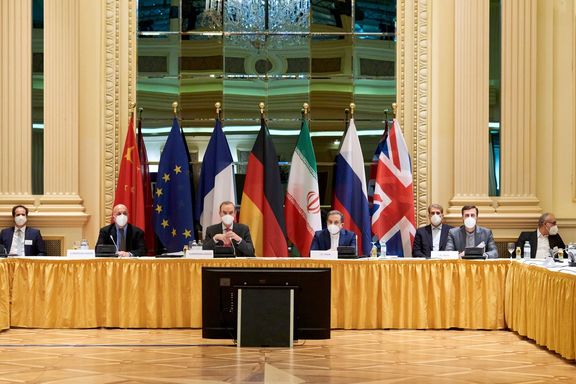
A pending visit to Tehran by the EU coordinator for talks to revive the Iran nuclear deal cannot be deemed "business as usual" European diplomats have said.

A pending visit to Tehran by the EU coordinator for talks to revive the Iran nuclear deal cannot be deemed "business as usual" European diplomats have said.
Enrique Mora, the EU's political director and lead nuclear negotiator, is due to hold talks on Thursday with members of Iran's nuclear negotiating team nearly four months after talks broke off between Iran and world powers, including the United States, to rescue the accord.
"The visit comes at an important time," the diplomats from Britain, Germany and France, known as the E3, said in a note on Wednesday. The three countries along with China and Russia are parties to the deal.
"The situation in the nuclear field has been worsening and been aggravated continuously since then," they said, alluding to Iran's accelerating enrichment of uranium to higher fissile purity, a possible pathway to a nuclear bomb.
"For this reason, we do not see this visit as 'business as usual', but rather as a decisive visit in the crisis."
The Islamic Republic has repeatedly said it will return to the negotiations "soon" without giving any sense of what that actually means. Western diplomats have tentatively said a return to the Vienna talks may be possible before the end of October.
Reporting by Reuters
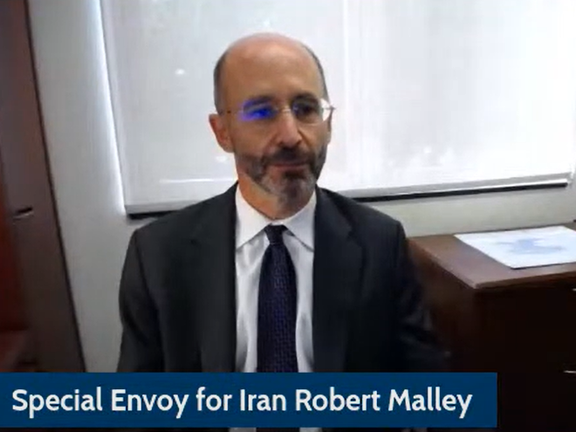
Rob Malley, the US special envoy for Iran, said Wednesday there had been “too much focus on the date” for resuming the Vienna nuclear talks with Tehran.
Malley said that the real issue was whether Iran had “a realistic view on how to come back into compliance with the deal.” Malley's statement about too much focus on the date for resumption of the talks comes as both top US officials, such as Secretary of State Antony Blinken, and European powers have in recent weeks emphasized that time is running out.
At the same time, he also used a tougher tone, reiterating that the US is ready to consider “all options” if Iran were not willing to return to the constraints of the 2015 nuclear deal.
Vienna talks between Iran and world powers, which began in April, was initially suspended since June pending transition to a new administration in Tehran after presidential election won by Ebrahim Raisi (Raeesi). But more than two months after the hardliner took office Tehran has not announced when it would return to Vienna.
In an interview with the Carnegie Endowment for International Peace, Malley stressed the benefits of reviving the 2015 deal − the JCPOA, Joint Comprehensive Plan of Action − while extolling the Biden administration’s cooperation with Israel and the Arab Gulf states, who opposed the deal.
Malley called the decision of former president Donald Trump to leave the JCPOA in 2018 “catastrophic.” He said that Iran’s steps in expanding its nuclear program since 2019 were ones “you could all reverse,” even if expansion would at some point be “irreversible.”
Calm things down
The envoy said a possible “longer and stronger” agreement with Iran could follow a revived JCPOA: “They [Iran] would like to get something more than the JCPOA…The best way forward is to get back to the JCPOA and then discuss ways of strengthening it and dealing with issues that remain very divisive between Iran and the United States. We think this would be to our mutual benefit, there are still things that Iran still wants in terms of sanctions and things that we still want…Let’s get back to the JCPOA to calm things down.”
Rather than expressing any toughening of the US position Malley said the Vienna talks accepted the JCPOA focus on Tehran’s atomic program: “That remains the equation, the equilibrium that remains on the table.”
The critics of the Biden administration’s Iran policy say that if the JCPOA is restored, without additional agreements and sanctions are lifted, Iran would have little incentive to discuss more restrictions on its nuclear, ballistic missiles or regional policies. Most JCPOA limits on Tehran’s nuclear activities will expire in a few years and then it could pursue a much expansive program.
Malley also said that the fate of four Americans jailed in Iran was “separate and apart” from the nuclear talks, on a “separate track.”
Discussions with Iran over the detainees were indirect, the envoy said, just like US participation in Vienna, where talks are based on JCPOA structures, which the US left under Trump. Malley conceded he found this frustrating.
“The Iranian refused direct communications, direct contact with us…[which] lends itself to misunderstandings, to delays…the negotiations would have been more effective had we been able to talk to the Iranians directly.”
But Malley insisted the Biden administration had offered confidence-building measures, and that all parties − Europe, Russia, China “and the Iranian negotiators themselves” – acknowledged “real progress” in Vienna. Malley said Washington continued to tell China that a revived JCPOA would help stabilize a region from which Beijing imported most of its oil.
A different path
Malley said it remained to be seen what path would be taken by a new Iranian administration “clearly stating that it wants to do things differently … [and] every day is making statements about how little was achieved” in Vienna.
“The Biden administration put on the table ideas which meant if Iran had negotiated, and reached this understanding, then sanctions…inconsistent with the JCPOA would have been lifted, and lifted very quickly,” he said. “That’s the choice Iran faces today: are they prepared to go back, or do they want to choose a different path?”
Malley said that close coordination with Israel and the Arab Gulf states − with the Saudi, Israeli and Emirati foreign ministers currently in Washington – recognized their “real reservations about the nuclear deal” and that Trump’s withdrawal had been “celebrated quite strongly in Israel.”
But Malley suggested that four rounds of Saudi-Iran talks and a “lively debate in Israel” were both positive developments.
“We will be prepared to adjust to a different reality in which we have to deal with all options to address Iran's nuclear program if it's not prepared to come back into the constraints [of the JCPOA],” he said.
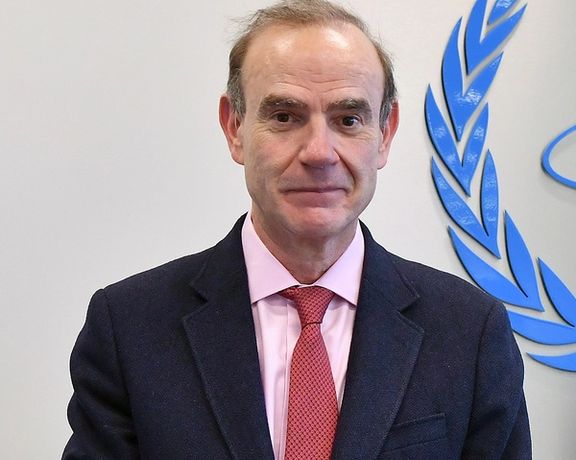
A pending visit to Tehran by the European Union's coordinator for talks to revive the Iran nuclear deal is vital to its future, France said on Wednesday.
The French foreign ministry also questioned the new hardline Iranian administration's commitment to salvaging the pact.
Enrique Mora, the EU's political director and EU coordinator in nuclear talks with Iran, is due to hold talks on Thursday with members of Iran's nuclear negotiating team almost four months after talks stalled between Iran and world powers, including the United States, to revive the 2015 deal.
"Through its statements and actions on the ground, the new Iranian administration of President (Ebrahim) Raisi raises doubts about its intention to return to the Joint Comprehensive Plan of Action (JCPoA)," French Foreign Ministry spokeswoman Anne-Claire Legendre told reporters in a daily online briefing.
"While refusing to negotiate, Iran creates facts on the ground that further complicate the return to the JCPoA. It is therefore in a context of crisis and at a critical moment for the future of the nuclear agreement that this trip by...Mora to Tehran takes place."
The Islamic Republic has repeatedly said it will return to the negotiations "soon" without giving any sense of what that actually means. Western diplomats have tentatively said a return to the Vienna talks may be possible before the end of October.
Legendre added that Tehran would also need to be clear about its intentions should it come back to the talks.
Since then-US President Donald Trump ditched the deal in 2018 and reimposed sanctions on Iran, Tehran has been rebuilding stockpiles of enriched uranium, refining it to higher levels of fissile purity, and installing advanced centrifuges to speed up production.
President Joe Biden aims to restore the deal but the sides disagree on which steps need to be taken and when.
Key issues include what nuclear limits Tehran will accept, what sanctions Washington will remove, whether there will be any guarantees and the prospect of follow-on talks on Iran's future nuclear program, regional and ballistic missile activities, diplomats have said.
"In line with recent regional and international consultations, I will host @eu_eeas Deputy Secretary General @enriquemora_ on Thursday," Iranian Deputy Foreign Minister Ali Bagheri Kani, who is expected to lead Iran's new negotiating team, said in a Twitter post on Wednesday.
"Exchanging views on bilateral & regional issues including Afghanistan, as well as talks on removal of cruel sanctions, are on the agenda."

The EU envoy coordinating talks on reviving the Iran nuclear deal, Enrique Mora, will visit Tehran on Thursday, the Iranian foreign ministry has confirmed.
In June, Iran suspended talks with world powers to revive the 2015 nuclear deal and the West has been urging Tehran to return to talks immediately.
"(Mora's) trip will take place on Thursday. It follows consultations between the two sides on issues of mutual interest, including relations between Iran and the Union, Afghanistan and the nuclear accord," ministry spokesman Saeed Khatibzadeh told Iranian state media on Tuesday.
A major concern of Iran in any talks to rescue the 2015 nuclear deal would be around ways to verify the lifting of U.S. sanctions, Foreign Minister Hossein Amir-Abdollahian said on Saturday.
The talks, which aim to bring Washington and Tehran back into compliance with the pact, aimed at curbing the Iranian uranium enrichment program, were adjourned in June after hardline cleric Ebrahim Raisi (Raeesi) was elected Iran's president.
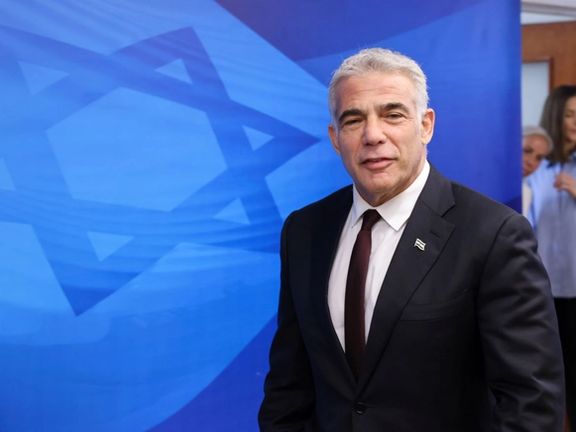
On Tuesday, Israel’s Foreign Minister Yair Lapid met with the US National Security Advisor and is set to meet with others as part of a visit to Washington.
Lapid’s office released a statement after his meeting with US National Security Advisor Jake Sullivan saying, “the foreign minister shared with the national security advisor Israel’s concerns about Iran’s race toward nuclear capabilities, as well as that Iran is becoming a nuclear threshold state.”
The statement went on to stress that “Lapid also discussed with the national security advisor the need for an alternative plan to the nuclear agreement.”
While in the United States, Lapid is also meeting with US Vice President Kamala Harris, US Secretary of State Antony Blinken, Speaker of the House Nancy Pelosi, and other lawmakers. He will also participate in a special trilateral meeting with Blinken and the UAE’s foreign minister.
This visit comes as Israeli officials have become increasingly vocal in their impatience with the stalemate in nuclear negotiations with Iran. They have urged the Biden administration to prepare another package of sanctions as well as undertake military drills in the Middle East as a show of force to pressure Iran to return to the table.
Jerusalem has also repeatedly emphasized the need to formulate a Plan B on Iran, should the nuclear negotiations with Tehran fail to salvage the nuclear deal from 2015.
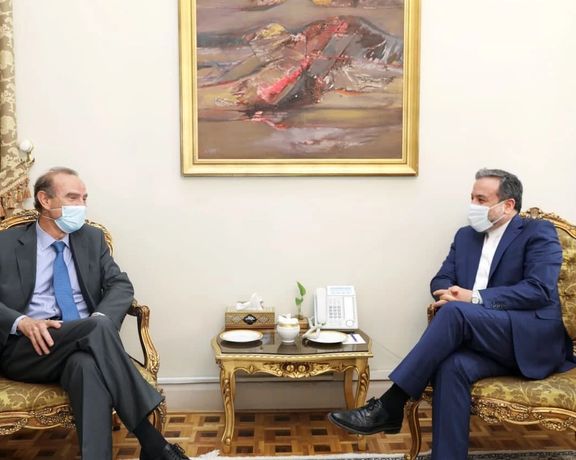
A top European Union official might visit Tehran within days to hold talks aimed at restarting nuclear negotiations in Vienna, Bloomberg reported on Tuesday.
According to unnamed officials, EU deputy foreign policy chief Enrique Mora is expected to travel to Iran to try to pave the way for Tehran’s return to negotiations that were suspended in June. At the time Iran said its new president needed time to form a government, but after more than three months the Islamic Republic has still not given a firm date for its return.
The United States and Europe have warned that time is running out and they would not wait “forever” for Iran to rejoin the talks. It is not clear if Iran has been making new demands. Iran’s foreign minister last week signaled that his country wants the US to unfreeze its blocked funds, but Germany, one of the negotiating countries, said Tehran cannot make new demands.
"Iran cannot set any further conditions for resuming the talks," a German foreign ministry spokesman said.
Bloomberg said that a spokesman of the European Commission, Peter Stano declined to comment on news of Mora’s possible trip to Tehran.
It also drew attention to tightening energy supplies in the world and said that the fate of the talks is being closely watched by energy markets.